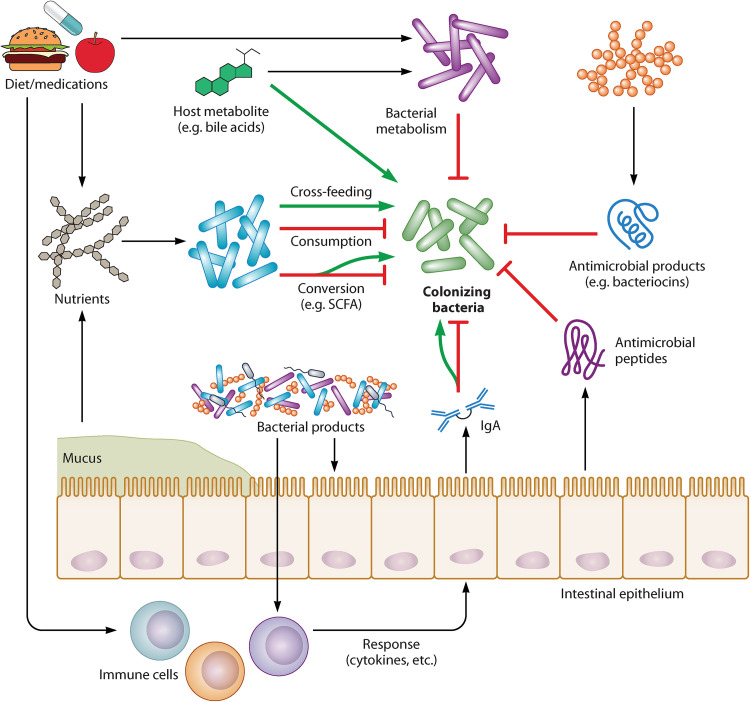FIG 2.
Mechanisms by which the gut ecosystem modulates bacterial intestinal colonization. All facets of the gut landscape are directly or indirectly linked with the others. The gut microbiota influences the success of bacterial colonizers by regulating nutrient availability, producing metabolites that inhibit bacterial growth, and secreting antimicrobial molecules. Microbiota-associated processes depend on host-extrinsic factors (e.g., diet and medications). Moreover, the microbiota shapes the gut landscape via interactions with key host-intrinsic gut environmental factors, like immune cells and the intestinal epithelium, both of which secrete products like antibodies (e.g., IgA) and antimicrobial peptides and mucus, respectively, that further influence the hostility or permissiveness of the gut. The functions of these host-intrinsic elements are also shaped by interactions with one another, as well as other factors, like diet. Green arrows indicate functions that can support colonization, depending on context.

